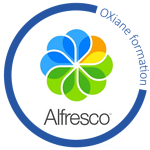This course will teach attendees how to define and create Alfresco Content Models.
Content models define the structure and organization of content and metadata in a repository.
Content models in ECM can be thought of in the same way that schemas are in database application.
This organization and structure is key to developing content centric applications.
Programme
Introduction
- This course will cover the core concepts around content models.
- The process of designing a content model will be explained so that a wide range of roles will be able to understand the process.
- We will also explore some of the underlying technical aspects of content models, so that developers will be able to create and install content models into the repository.
Content Modeling Primer
- This module goes over how content is represented in the Alfresco repository
Structure of a Content Model
- This module covers how the components that make up a content model and how they are arranged to make a model.
- In this module, we also introduce the use case that we will be designing our content model around.
Types
- This module covers how content models define the types of objects that can be stored in the repository
Associations
- This module covers how objects are associated with each other in the repository and how content models can define those associations
Aspects
- This module covers aspects, their benefits, where to use them and how the content model defines the aspects
Constraints
- This module discusses how a content model can be used to define the valid values that properties of an object can take on.
Indexing and Search
- This module discusses how content models control the ability to search for content.
Overrides
- This module covers how content types can be extended via inheritance and how the settings of inherited properties can be overridden.
Case Study
- This module is a class discussion and design exercise in which we add a new feature to the model that we have developed throughout the class.

